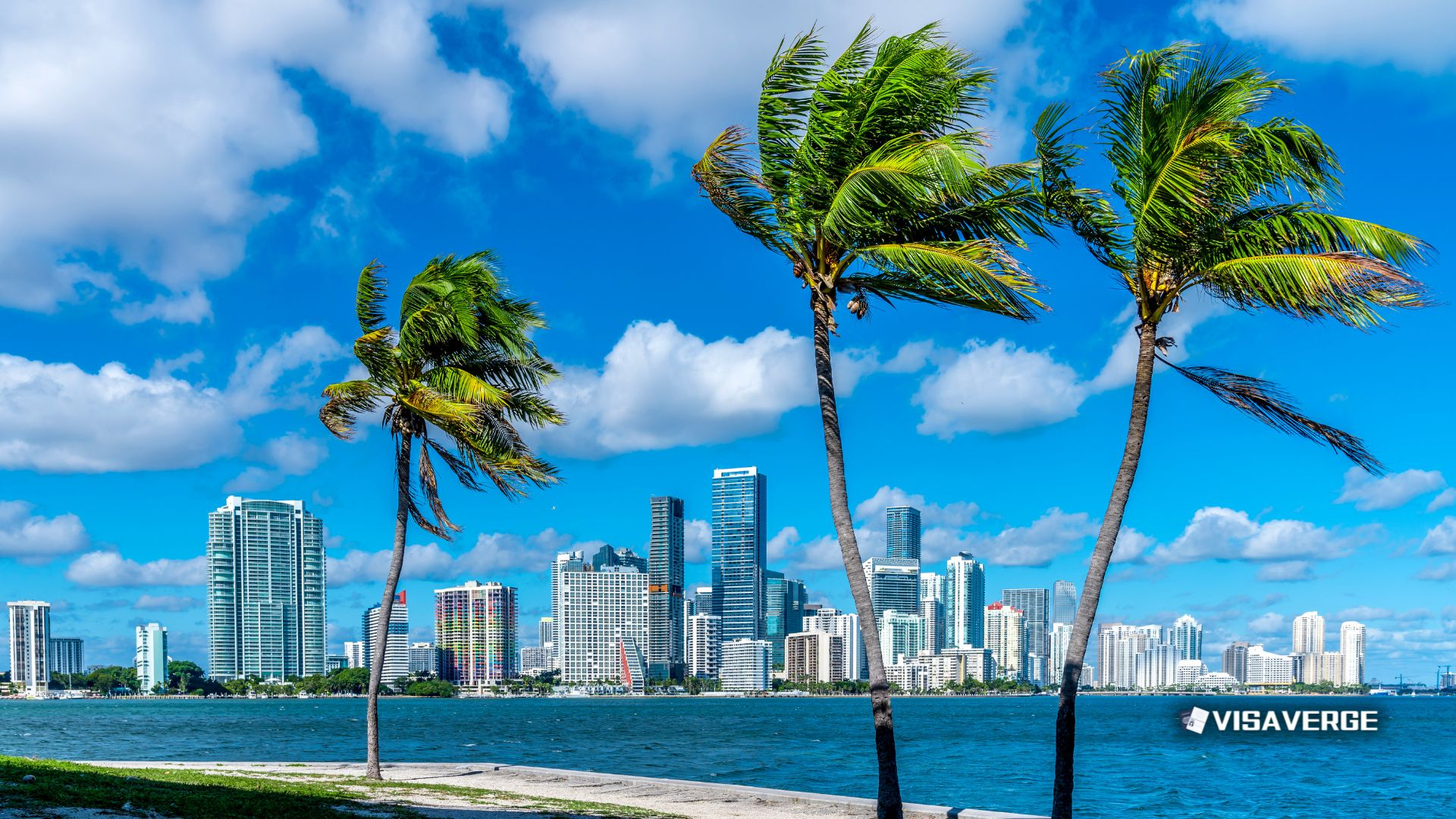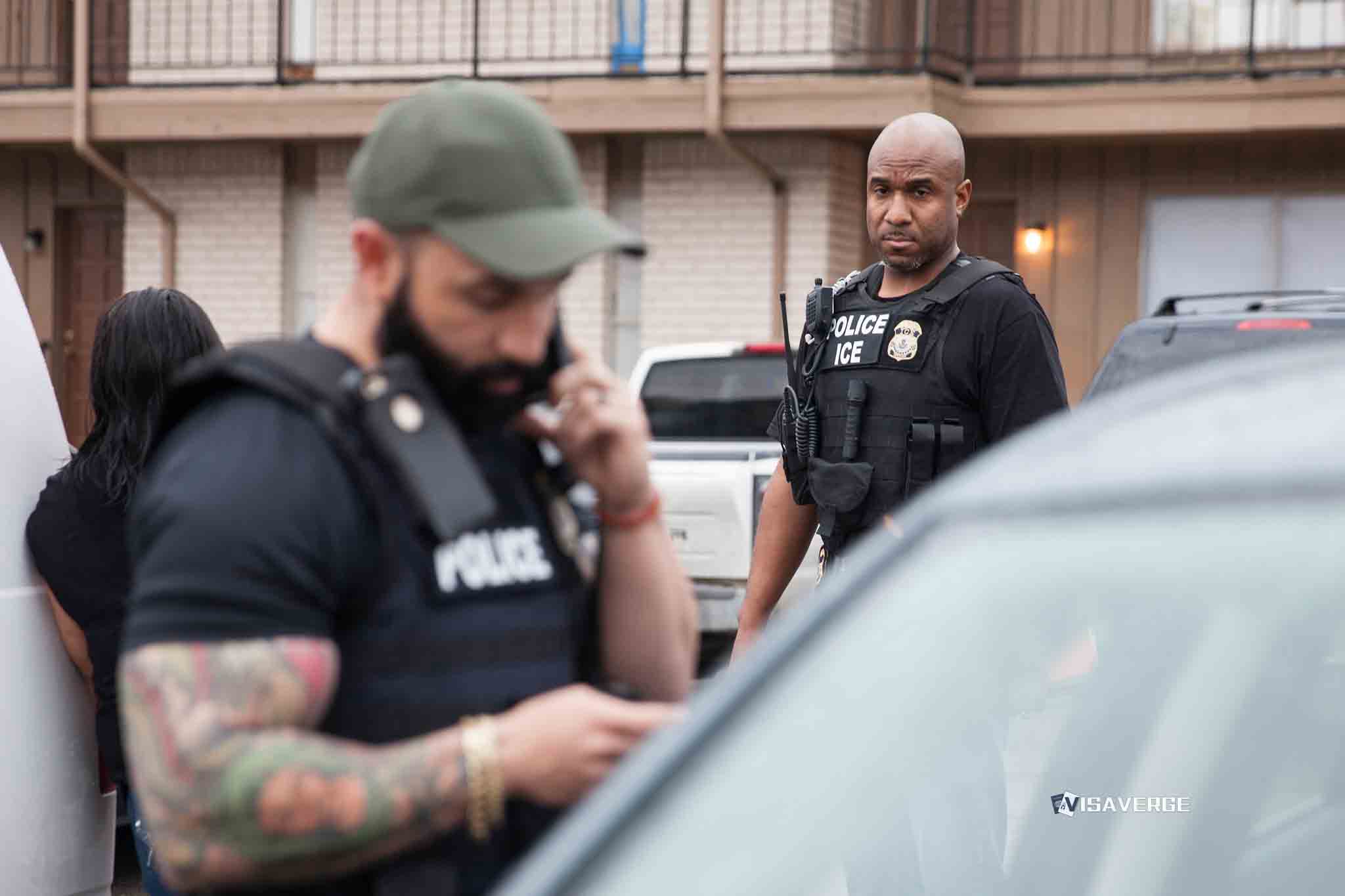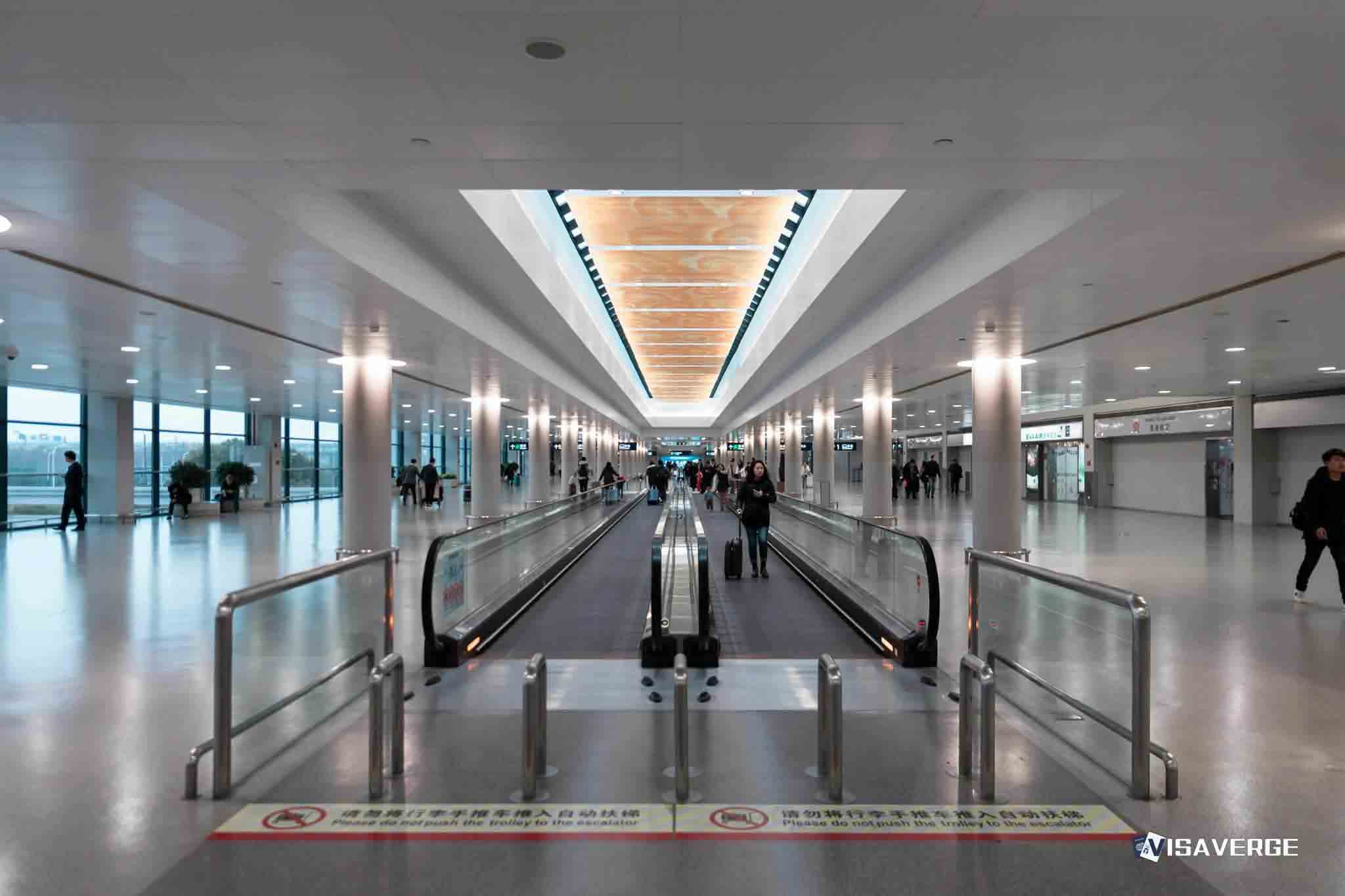A nearly three-week government shutdown this year has rippled through U.S. immigration systems, triggering fresh visa processing delays from consulates abroad to domestic case centers. Students on F-1 visas, workers on H-1B, families waiting on Green Cards, and tourists planning trips are meeting longer lines, canceled interviews, and fresh backlogs just as peak fall travel and academic terms get underway.
Embassies in high-volume countries faced interview calendars that filled up within days of reopening, while employers and universities warned that stalled Labor Condition Applications (LCA) and rescheduled consular slots were pushing start dates into winter. According to analysis by VisaVerge.com, these slowdowns are likely to stretch for weeks beyond the budget deal, even as agencies work through the pileup.

What stopped and why the effects lasted
The shutdown halted or reduced operations at the very agencies that keep immigration moving, and the aftereffects are now clear.
- The U.S. Department of State cut consular services to basics in many posts, then reopened to a flood of rebookings.
- The Department of Labor paused its immigration functions, freezing new H-1B steps that depend on a certified LCA.
- U.S. Citizenship and Immigration Services (USCIS) continued many tasks because it is fee-funded, but still saw fewer support staff and slower handoffs with other agencies.
- Customs and Border Protection (CBP) kept ports open, yet some travelers faced longer lines and extra questions when paperwork looked out of date.
These interruptions created backlogs that don’t disappear the day agencies reopen. New filings pile up during the closure; rescheduled interviews share calendars with fresh bookings; and officers must recheck documents that expired during the pause.
Impact on students (F-1)
Thousands of F-1 applicants expecting late-summer or early-fall interviews found appointments canceled or pushed back.
- If an interview is delayed, some students cannot arrive by the program start date printed on the Form I-20.
- Schools can often defer a start date, but they must record changes in the government’s student system.
- Practical consequences include adjusting flights, rebooking housing, and asking professors to shift class plans.
- A lost month can mean missing key lab time or a teaching assignment, with tuition and living costs still due.
Suggested student actions:
1. Ask your university’s international office to open visa interview slots as soon as an I-20 is issued.
2. If the visa isn’t ready before the start date, request a deferral and ensure the school updates records.
3. Check validity of time-limited items (medical exams, passports) and renew early if needed.
Impact on employers and H-1B workers
Employers felt the crunch differently:
- A new or amended H-1B filing cannot proceed without a certified LCA.
- When the Department of Labor system is offline, no LCA can be filed, and job offers get put on hold.
- Delays can force employers to change start dates, assign temporary projects, or keep a seat empty.
- After reopening, demand spikes and queues grow quickly.
Worker-side notes:
– Workers in the U.S. who filed timely extensions generally can continue working under automatic protections, but travel, visa stamping, and client changes remain risky while cases sit.
– For new H-1B hires abroad, rescheduled consular interviews can push onboarding into the next quarter.
Practical employer mitigations:
– Keep a bank of certified LCAs for known roles to file faster once systems resume.
– Avoid encouraging last-minute international travel for employees with pending cases.
Impact on families and Form I-485 applicants
Families adjusting status inside the U.S. are not spared:
- USCIS accepts filings during a shutdown because fees fund operations, but cases slow as officers juggle heavier loads and fewer support services.
- Filers of Form I-485 may see longer gaps before a work permit (Form I-765) is produced, a travel document is approved, or an interview is set.
- If a medical exam or police certificate expires during a long wait, the fix is straightforward but costly: schedule a new exam or obtain a fresh certificate.
- Applicants using consular processing through the National Visa Center often face longer lags as embassy interview calendars are rebuilt.
Suggested family actions:
– Monitor National Visa Center messages and upload centers closely.
– Plan to obtain fresh medical exams or police records if your documents might expire before rebooked interviews.
Tourists and B-1/B-2 applicants
B-1/B-2 applicants often land at the back of the line after a closure because posts prioritize:
- Students with at-risk program dates,
- Health workers,
- Mission-critical travel.
Consequences:
– B visa interview dates can be pushed several months out in high-demand countries.
– Switching consulates at the last minute can sometimes find earlier dates but may trigger extra checks and longer interviews.
– Emergency slots exist but require clear proof of urgency (medical care, funeral).
Common misconceptions and agency recovery timeline
Misconceptions:
– USCIS does not stop work altogether; most operations continue but at a slower pace.
– A canceled embassy appointment is not always automatically rebooked. Applicants often must log back into the same scheduling portal and choose a new time with the same DS-160 confirmation number.
– Premium processing speeds USCIS decisions but does not speed LCA certification or consular interviews.
Recovery pattern:
– Historically, consulates and service centers take several weeks to return to normal rhythm after a shutdown.
– Many applicants see movement only after four to eight weeks, and some wait longer if their category has high demand or they need background checks.
– Agencies will prioritize urgent cases first, then expand to other categories as staffing ramps up.
The day doors reopen is not the day backlogs disappear.
Practical steps applicants can take now
Three standout steps:
1. File early when possible and keep digital records ready.
2. Rely on official instructions and get letters from your employer or school confirming status, program dates, or job details.
3. Check and refresh time-limited documents—medical exams, police certificates, passports—before they go stale.
Additional practical tips:
– Keep scans of important notices and travel records (e.g., Form I-797, Form I-94, payment receipts) in at least two places (cloud folder + encrypted drive).
– Stay on top of online accounts to catch requests for evidence or reschedule notices quickly.
– Monitor embassy webpages and agency portals for official updates on reduced hours or emergency appointment policies.
– Avoid paid offers that promise instant results; scams spike during long waits.
Premium processing and emergency appointments
- Premium processing can be worth it for parts of a case USCIS controls, because it sets a short clock for USCIS decisions.
- It does not speed steps handled by the Department of Labor (LCA) or U.S. consulates (visa interviews).
- Emergency consular appointments exist for clear urgent needs (medical treatment, death in family, urgent academics for F-1 students); a job start date alone may not qualify unless it meets mission-critical criteria.
- Gather strong proof (hospital letters, official university memos) before requesting an emergency interview.
Tools, forms, and official resources
Use official pages to reduce guesswork and confirm instructions:
- State Department visa appointment wait times: U.S. Visa Appointment Wait Times
- Nonimmigrant visa application DS-160 overview: DS-160 – Online Nonimmigrant Visa Application
- Adjustment of status Form I-485: Form I-485, Application to Register Permanent Residence or Adjust Status
- Employment authorization Form I-765: Form I-765, Application for Employment Authorization
- USCIS notice Form I-797: Form I-797, Notice of Action
- Arrival/departure record Form I-94: Form I-94 Arrival/Departure Record
- H-1B LCA information: U.S. Department of Labor – H-1B Program
Airport, border, and practical travel advice
Airports and land borders remain open during funding gaps, but expect closer reviews if paperwork is out of sync.
- Border officers focus on what is valid the day you arrive.
- If your case is pending, carry employer letters explaining your petition is in process.
- Travel while an extension is pending can be risky: you may need a new visa stamp to reenter.
Why delays vary and when to consider legal help
Delays can vary due to:
– Background checks,
– Name ambiguity,
– Prior travel issues,
– Fraud prevention and national security checks.
If your current work authorization or status end date is approaching during a post-shutdown slowdown:
– Speak with your employer or school immediately.
– Consider legal advice—filing before an end date can protect your ability to keep working or studying.
– Sometimes a short trip abroad can cause a longer delay upon return because a new visa interview will be required.
Economic and reputational ripple effects
The broader fallout affects:
– Universities (tuition, labs, teaching),
– Tech firms (engineering teams),
– Hospitals (international doctors),
– Tourism (holiday planning).
Missed start dates, delayed payrolls, and canceled trips accumulate week after week, and the U.S. reputation as a welcoming place for study, work, and travel can be dented temporarily.
Final practical checklist
- Build a timeline with a buffer between expected visa issuance and travel.
- File early where possible.
- Keep digital and physical copies of all critical documents (Form I-797, I-94, payment receipts).
- Refresh documents with limited validity before they expire.
- Use official agency tools and follow embassy instructions closely.
- Get confirming letters from employers or schools to present to consulates or border officers.
- Avoid paid “fast-track” offers from unofficial sources.
Those steps won’t erase the backlog, but they will keep your case ready to move the moment a window opens. With patience, preparation, and close attention to official updates, F-1 students, H-1B professionals, and families can still reach their goals despite temporary shutdown-induced delays.
Frequently Asked Questions
This Article in a Nutshell
The nearly three-week 2025 U.S. government shutdown disrupted immigration services across agencies, producing consular interview cancellations, frozen Labor Condition Applications (LCAs), and increased backlogs at domestic service centers. High-volume embassies filled calendars quickly after reopening, while USCIS—though fee-funded—experienced slower handoffs and reduced support staff. F-1 students risk missing program start dates and must coordinate deferrals; H-1B filings stalled without certified LCAs, delaying employer start dates; families using Form I-485 face slower work permits and interview scheduling. Recovery typically takes four to eight weeks or more; applicants should file early, refresh time-limited documents, monitor official portals, and secure employer or school verification letters. Premium processing speeds USCIS decisions but does not hasten LCA certification or consular interview availability.













